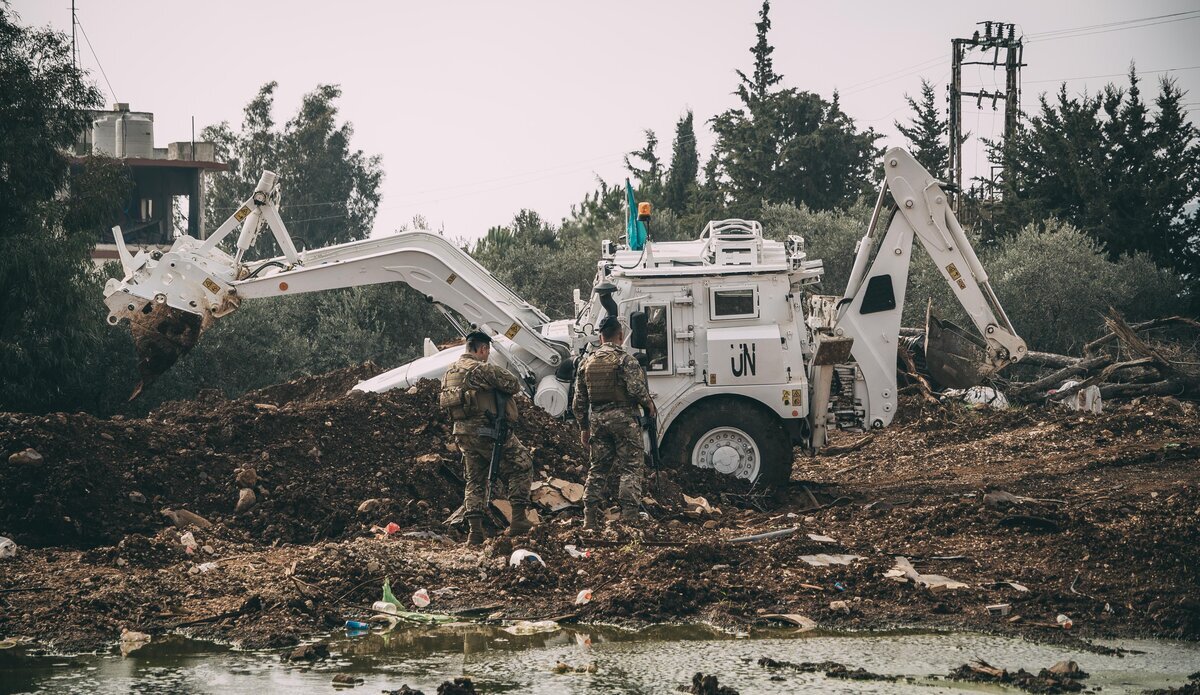Making south Lebanon safer: UNIFIL's efforts in UXO clearance
Since the cessation of hostilities agreement on 27 November 2024, UNIFIL has carried out 34 clearance operations in south Lebanon, removing 91 unexploded ordnance (UXOs) and improvised explosive devices (IEDs). While routine demining activities remain on hold, these efforts are helping to restore safety for peacekeepers, the Lebanese Armed Forces (LAF), local communities, and humanitarian actors.
The clearance operations have helped keep roads accessible for patrols, logistics, and humanitarian missions, while supporting LAF redeployments across the area. UNIFIL’s explosive ordnance disposal (EOD) teams are also working to remove roadblocks created by Israeli forces – an essential step for civilian safety and infrastructure restoration.
UNIFIL has increased its capacity with four EOD teams and two explosive ordnance reconnaissance teams since late November. These teams are helping restore safe access to ensure safe movement for peacekeepers and LAF soldiers as they carry out their tasks.
In parallel, the United Nations Mine Action Service (UNMAS) has conducted multiple awareness sessions on explosive ordnance risks for UNIFIL personnel and provided training to validate demining teams.
UNIFIL currently has six demining teams – three each from China and Cambodia, with one EOD team per contingent. Additionally, two new explosive ordnance reconnaissance teams from France have joined the mission in response to the heightened threat posed by the recent conflict.
“This work is not only important for the safety of UNIFIL peacekeepers, but also for the safety and well-being of local communities,” said UNIFIL Spokesperson Andrea Tenenti. “By clearing unexploded ordnance and ensuring safe access to key areas, peacekeepers and the LAF can move freely – an important step toward restoring stability and security.”
 UN
UN United Nations Peacekeeping
United Nations Peacekeeping








